Popular Science by Celestron AstroMaster 80AZS telescope review
A decent telescope doesn't have to cost the Earth, but it can cost it a few stars for backyard astronomers
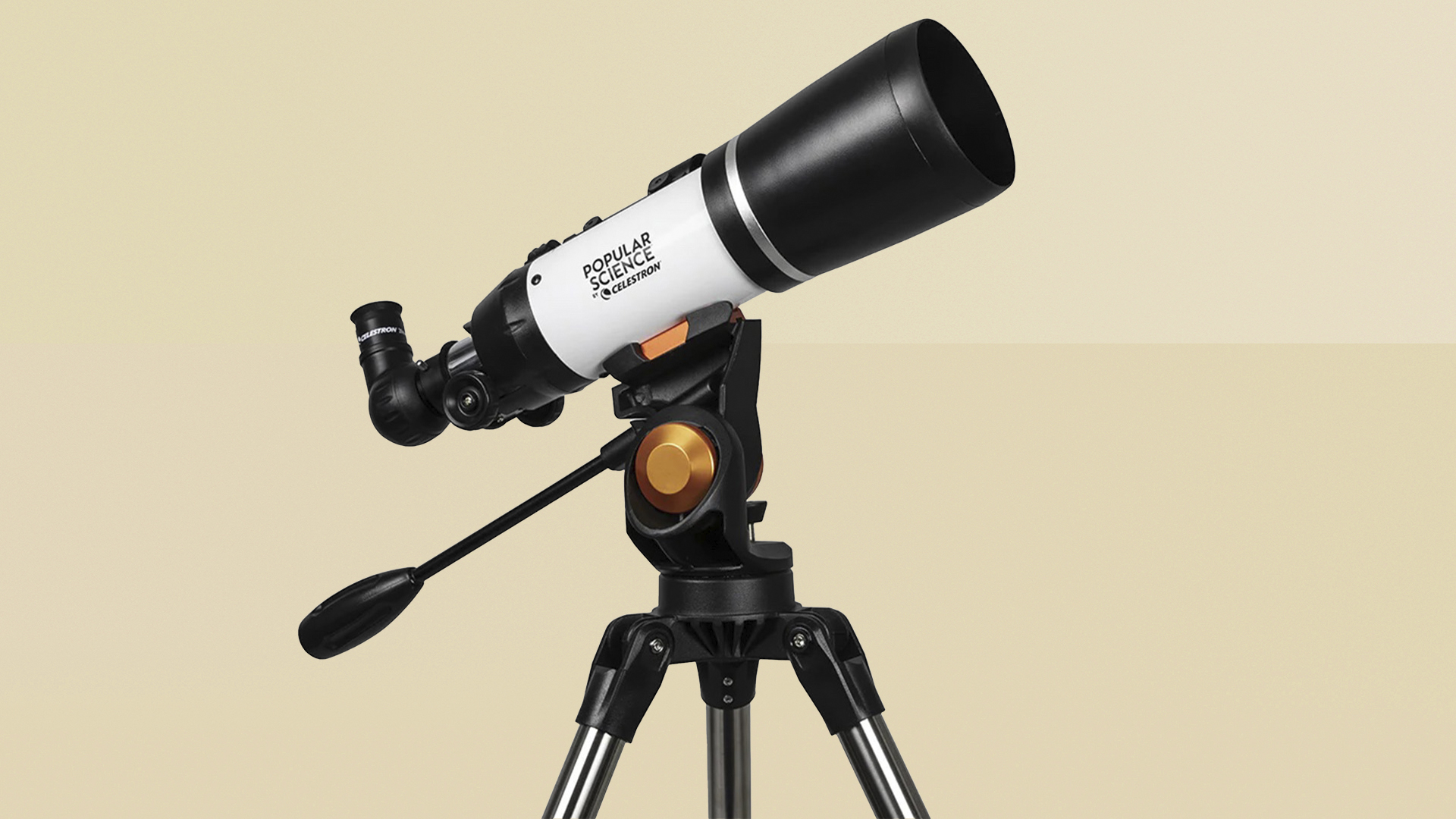
The AstroMaster 80AZS is a basic beginner telescope, ideal for budget-conscious families wanting to explore the solar system and beyond.
-
+
Affordable
-
+
Finderscope makes finding objects easier
-
+
Lightweight and quick to set up
-
-
The smartphone adapter is finicky
-
-
There’s a definite learning curve
Why you can trust T3
With the jaw-dropping images from the James Webb Space Telescope in the news, people across the world are looking at the stars with a greater sense of wonder. If you have a child or young adult who wants to explore the stars from the comfort of your backyard, the Popular Science-branded Celestron AstroMaster might be a great option as a telescope for beginners.
Celestron AstroMaster 80AZS: price and availability
This specially branded edition of the AstroMaster 80AZS is available in the US only with a list price of $239.95. However, Celestron’s own website now lists it as $199.95 and at the time of writing, a limited-time deal was offering it for a low price of $64.99. The similar Celestron AstroMaster 80AZ is available in the UK.

Popular Science Celestron AstroMaster 80AZS
Celestron AstroMaster 80AZS: design and features
The 80AZS refers to the AstroMaster’s aperture size; its 80mm aperture should allow you to see not only the moon, but also the massive gas-giant planets like Saturn and Jupiter much further away, as well as some bright nebulas.
The Popular Science edition of the 80AZS also comes with two eyepieces, 20mm and 10mm, for different magnifications, a smartphone adapter for photos, and a red-dot finderscope. The finderscope proved to be invaluable for locking onto objects. Oddly enough (for an astronomy newcomer like me, at least), while the 20mm eyepiece offers 20x magnification, the 10mm eyepiece actually offers longer-distance viewing at 40x magnification. You can purchase other, more powerful, eyepieces from Celestron as well.
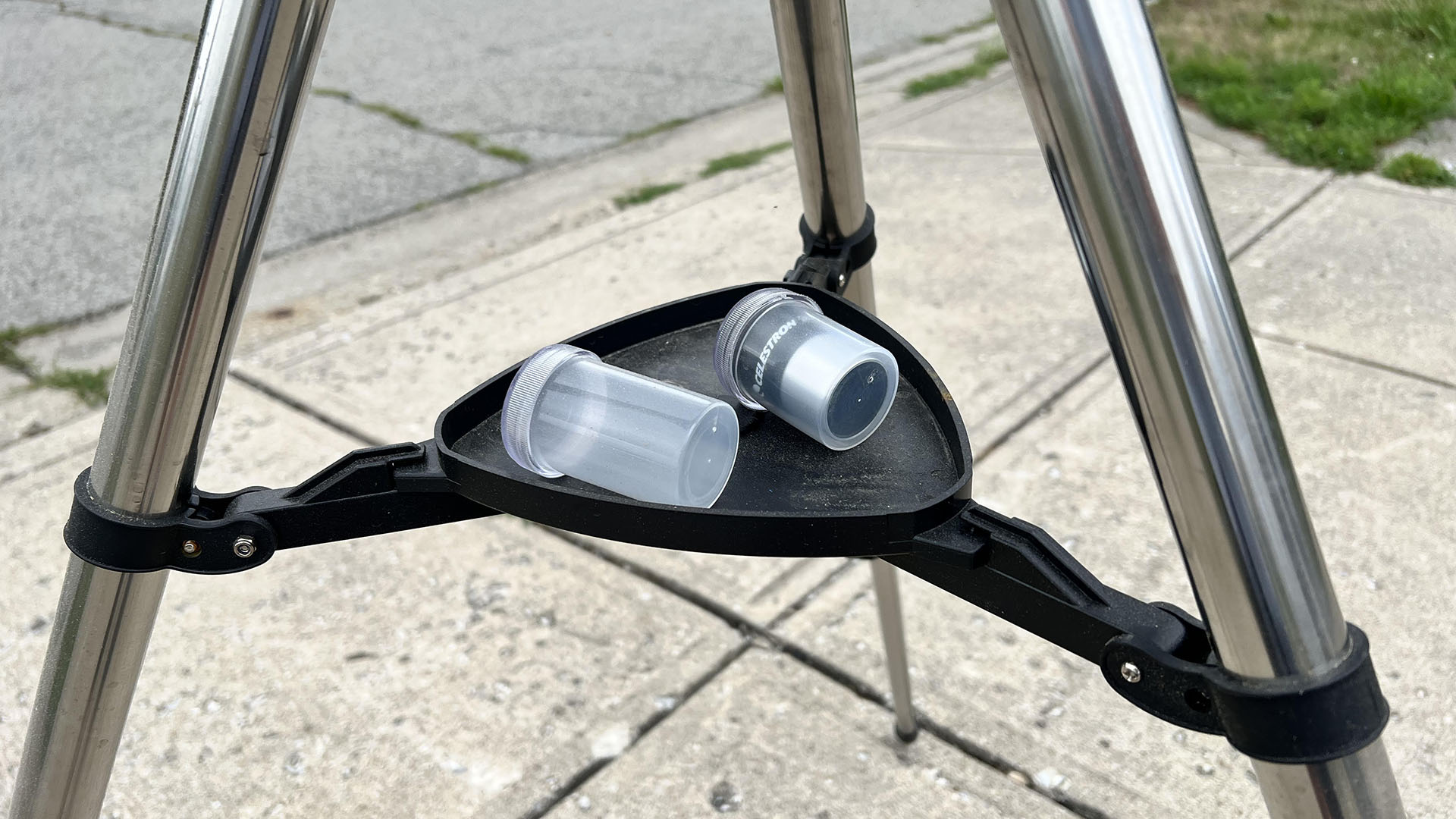
The tripod is fairly sturdy and the pan handle was smooth to operate. The accessory tray attached to the tripod is nice until you start breaking down the equipment for the night and your eyepieces and phone adapter fall onto the dark ground. I would have preferred a closed pouch or something similar.
There’s a lot of plastic on the AstroMaster, which probably helps keep it relatively light at 10 pounds. Even with the plastic, the build quality seemed solid. The AstroMaster 80AZS comes with a two-year warranty and unlimited tech support.
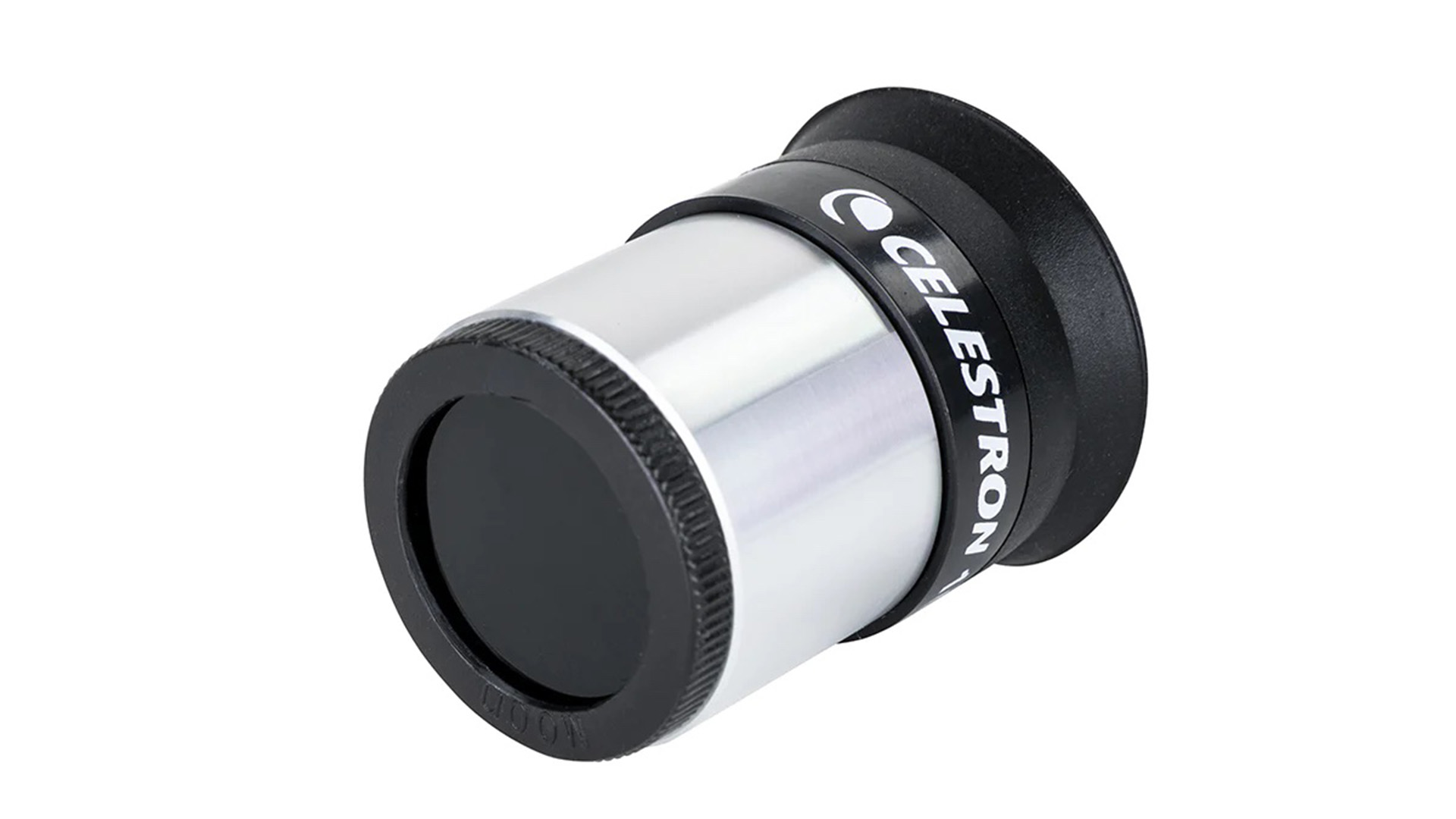
There's a choice of 10mm (40x) and 20mm (20x) eyepieces with the AstroMaster 80AZS
Celestron AstroMaster 80AZS: performance
Within 15 minutes, I had the telescope set up and ready to go. You’ll want to practice in the daytime before hunting for planets at night.
Seeing the moon and its craters so close, I felt a bit like Buzz Aldrin. Using Celestron’s SkyPortal app, I identified objects in the sky and then used the AstroMaster to focus in on them. It was often hit-and-miss. Although I eventually found solar superstars like Jupiter and Saturn with its rings, I wasn’t able to find interstellar objects like nebulas. Luckily a more experienced friend was able to take better advantage of the Celestron’s capabilities, finding one or two bright star clusters.
While the AstroMaster helps you see celestial objects more clearly, it also doubles as an excellent spotting scope for distant wildlife. I was kicking myself for not taking it along with me on my most recent trip to Yellowstone National Park.
I was excited when I read a smartphone adapter and Bluetooth shutter remote was included with the telescope, but that soon faded. The adapter seemed somewhat flimsy when clamping it onto the eyepiece, and the moon photos I took weren’t as sharp as I’d have liked. If you’re looking to do actual stellar photography, there are many better options out there. But you’ll be hard-pressed to find one at this price point.
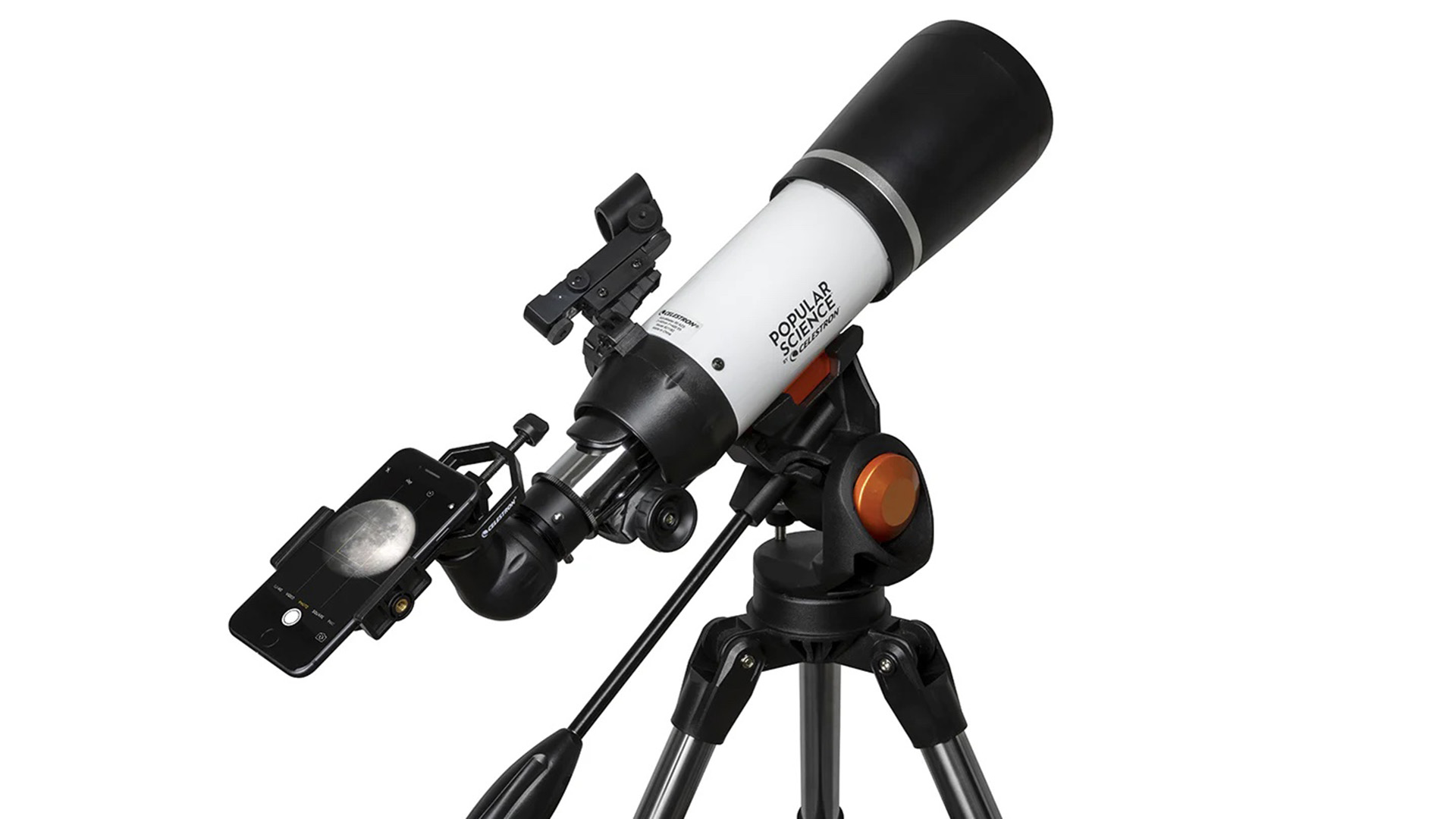
The smartphone adapter lets you attach your phone to the lens but won't result in high quality snaps.
Celestron AstroMaster 80AZS: verdict
If you have a budding astronomer in your home, the Celestron AstroMaster 80AZS could be a decent first telescope or one that you take with you on a weekend camping trip. It’s important to go in with realistic expectations though. What you see in the eyepiece will be pretty tiny and not as sharp as the photos you see on NASA’s Instagram. This is a telescope for nights in the backyard with family, not a multi-million-dollar piece of equipment you’d find in a planetarium. Serious star watchers might prefer a more powerful telescope with better optics.
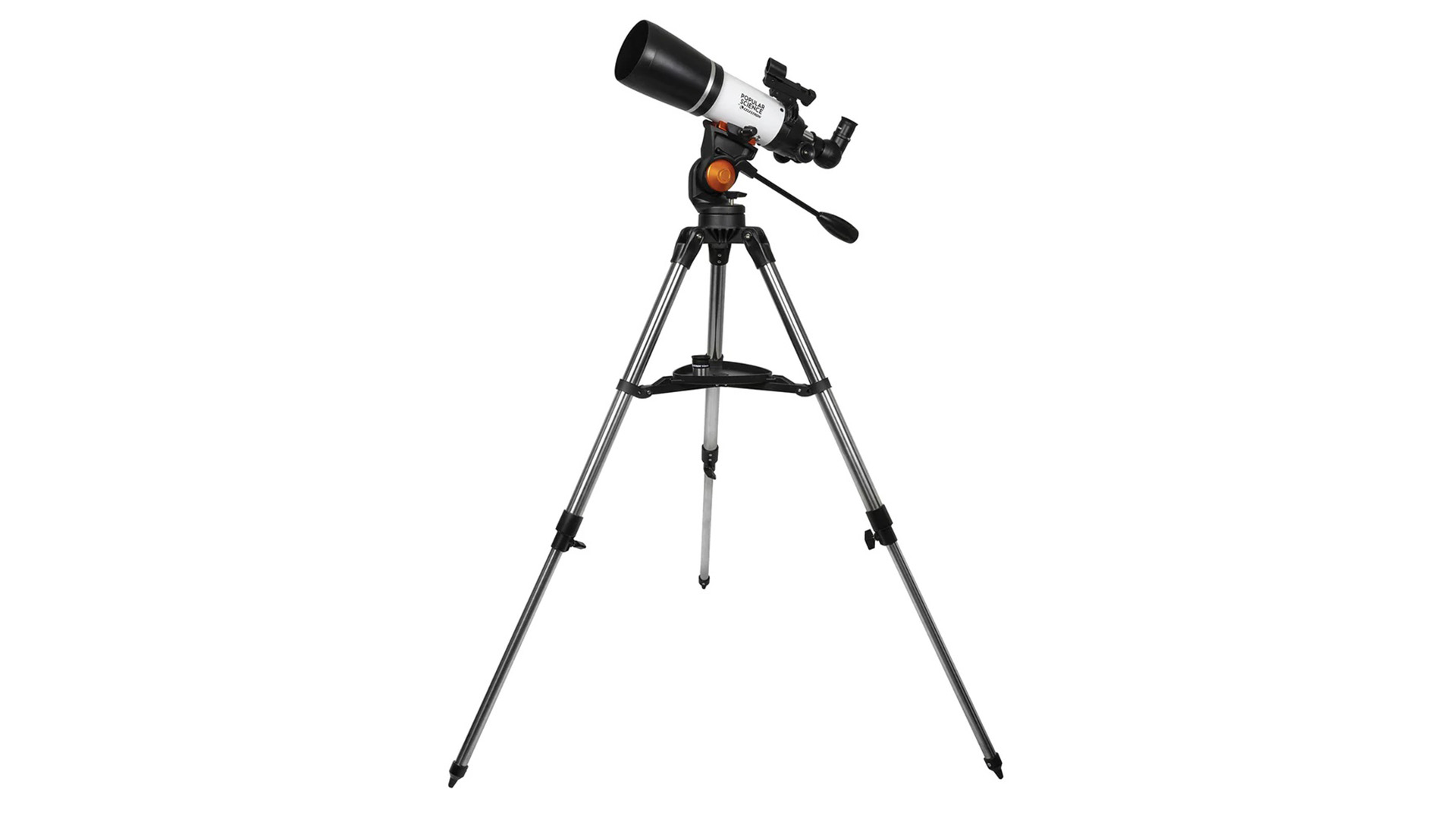
Celestron AstroMaster 80AZS: also consider
Our top pick for the best beginner telescope remains the more hefty Celestron AstroMaster 102AZ with its wider 102mm aperture and 660mm focal length.
Another great choice is the Zhumell Z114, a low-cost tabletop model that has won raves from other reviewers for its top-notch build quality, ease of use, and great optics for its price point.
For a little bit more cash, the Skywatcher Explorer-130M is our top pick for best telescope. This 130mm aperture telescope is considerably bright and comes with magnifications from 36 to 180 times.
Sign up to the T3 newsletter for smarter living straight to your inbox
Get all the latest news, reviews, deals and buying guides on gorgeous tech, home and active products from the T3 experts
-
 This new Renault EV costs more than a Porsche 911, and I still want one
This new Renault EV costs more than a Porsche 911, and I still want oneThe mad Renault 5 Turbo 3E now has a price, and you’ll need deep pockets
By Alistair Charlton Published
-
 Is this detective show my next obsession on Prime Video?
Is this detective show my next obsession on Prime Video?Ballard expands an existing universe
By Max Freeman-Mills Published
-
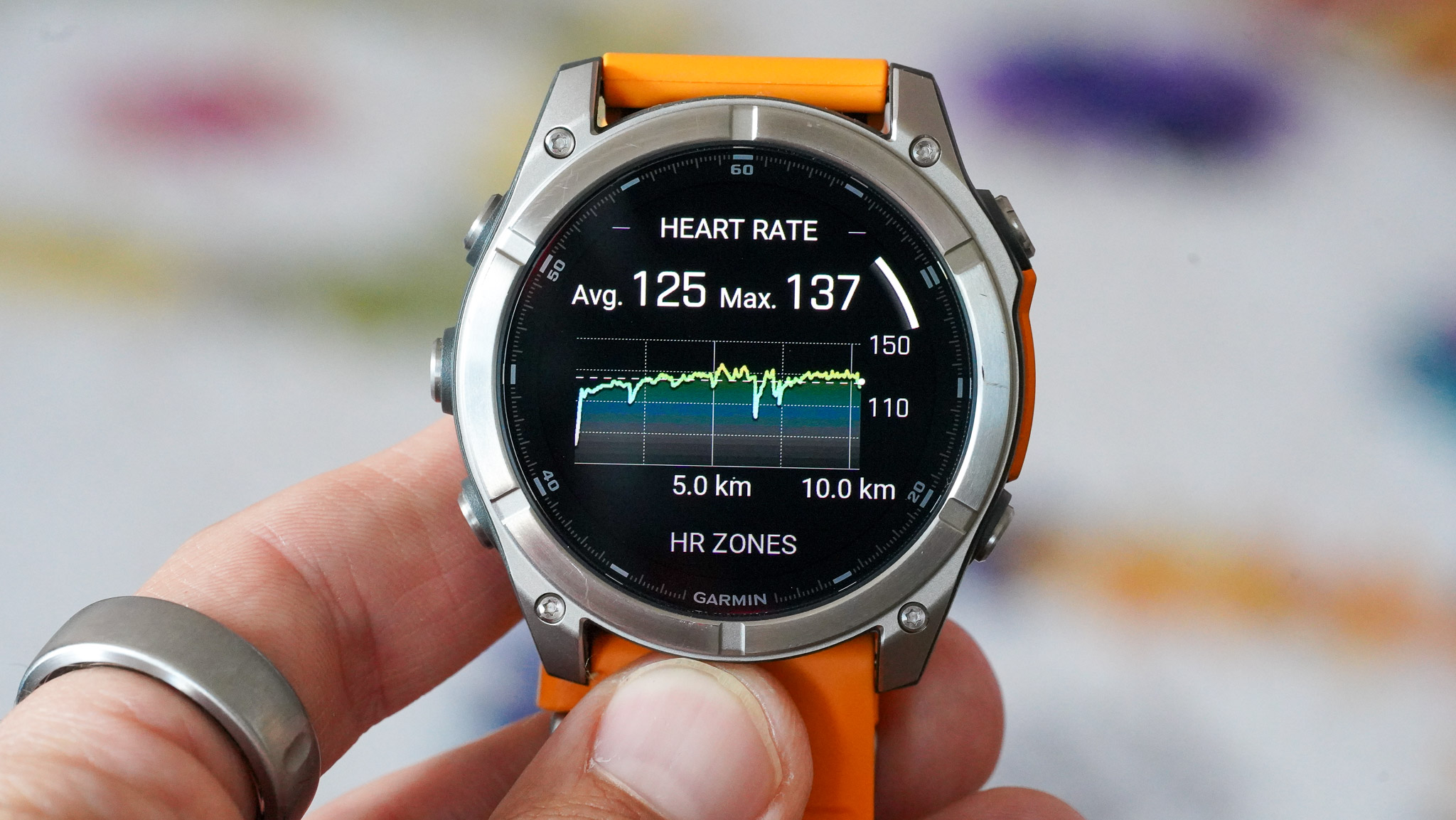 Garmin has switched on its new heart feature on certain smartwatches
Garmin has switched on its new heart feature on certain smartwatchesThe wearable brand rolls out ECG in the UK and Switzerland
By Matt Kollat Published